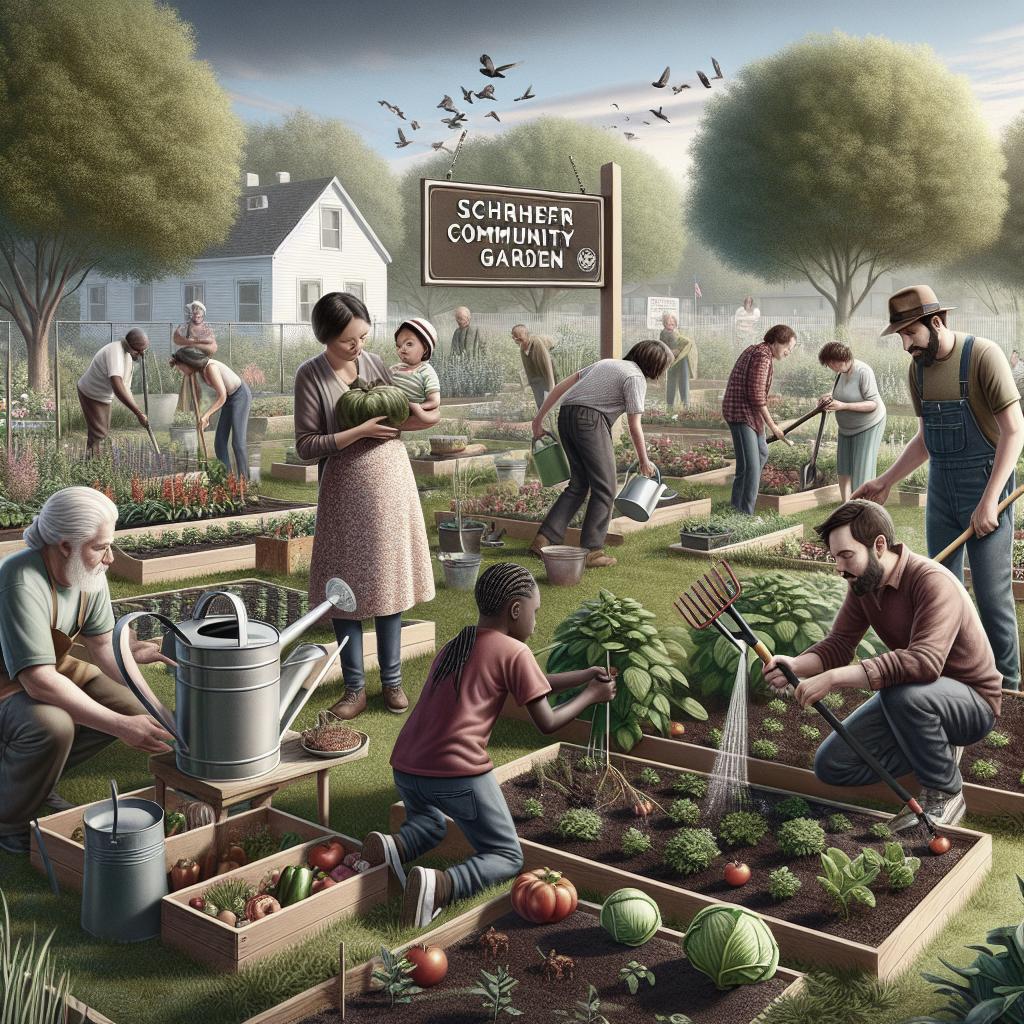Schreiber Community Gardening Groups: Cultivating Growth and Connection
Schreiber’s community gardening groups offer a vibrant example of local collaboration and eco-friendly practices. As urban spaces become more crowded and environmental concerns rise, these groups provide a much-needed green oasis and foster community spirit. From novice gardeners to seasoned horticulturists, these groups welcome all who share a passion for nurturing plants and sustainability. This blog post delves into the activities, benefits, and future prospects of Schreiber’s community gardening movement, emphasizing recent media impacts and potential growth avenues.
Add new comment
Recent Media
Community gardening has seen a surge in media coverage, spotlighting Schreiber’s efforts to promote environmental sustainability and social connectivity. Recent articles and news segments highlight the transformative impact these green spaces have had on urban landscapes. Such media focus not only raises awareness but also attracts new members who are eager to contribute to the community’s green initiatives.
The power of social media cannot be understated in promoting Schreiber’s community gardens. Instagram, Facebook, and Twitter feature posts that showcase the gardens’ beauty, the diversity of plants, and the camaraderie among gardeners. These platforms serve as a virtual gathering space, engaging people beyond geographical constraints and inspiring global gardening enthusiasm.
Community Engagement in Schreiber
Schreiber’s community gardening movement thrives on the diverse and dynamic participation of its citizens. Volunteers, local schools, and businesses collaborate to maintain and expand these gardens, reinforcing a sense of unity and shared responsibility. Workshops, planting days, and seasonal events offer opportunities for hands-on learning, skill-sharing, and forging meaningful connections.
Local schools often integrate gardening into their curricula, enhancing students’ appreciation for nature and sustainable practices. Involvement in community gardens provides practical education on botany, ecology, and teamwork, which are invaluable skills for lifelong environmental stewardship. Businesses contribute by donating materials or sponsoring specific projects, which fosters positive community relationships and brand visibility.
Innovative Practices and Sustainability
Schreiber’s community gardening groups are known for embracing innovative practices that align with sustainable gardening principles. Utilizing composting, rainwater harvesting, and organic pest control methods, these gardens minimize environmental impact while maximizing plant health. These sustainable practices not only benefit the immediate gardening efforts but also set a precedent for environmentally conscious living across the community.
Vertical gardening, hydroponics, and the incorporation of native plants are some of the innovative techniques being explored in Schreiber. These practices aim to optimize space utilization in urban environments, promote biodiversity, and reduce resource consumption. By experimenting with new gardening methods, Schreiber is at the forefront of sustainable urban agriculture.
| Aspect | Details |
|---|---|
| Media Influence | Raised awareness, increased membership through social media engagement. |
| Community Engagement | Involvement of volunteers, schools, and businesses in gardening efforts. |
| Innovative Practices | Adoption of composting, rainwater harvesting, and vertical gardening. |


